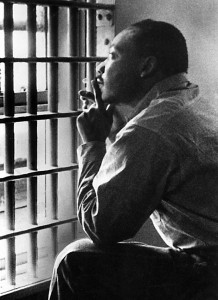Hello World,
As a lifelong bibliophile, one of my greatest joys to discover a new book to love 🙂 My friend and fellow author Tiffany L. Warren has a written a brand new book “The Replacement Wife” released today, that you are sure to love….Tiffany, who has written 15 novels including two young adult series (So For Real and The Fab Life) under pen name Nikki Carter, is also a playwright! “The Replacement Wife,” a stage play which debuted in 2012, featured vocal powerhouse Shirley Murdock and Tommy Ford from “Martin.” Below is a description of the book and my interview with Tiffany about “The Replacement Wife” the book….
Five years after his beloved wife’s death, wealthy Quentin Chambers still hasn’t returned to the church or his music ministry. Even his home is now devoid of music, and without his attention, Quentin’s five children are getting out of control–until his mother steps in and hires him a live-in nanny. Montana is pretty, compassionate, church-going, and even has a beautiful singing voice. The children take to her right away, and soon enough Quentin finds his heart opening to faith–and love–once more. But not everyone loves Montana. . .
A “friend” of Quentin’s first wife, Chloe has been scheming to become the next Mrs. Chambers since the funeral. Chloe is convinced she’s just one seduction away from a marriage proposal. Now she’ll do whatever it takes to get rid of Montana–including blackmail, theft–and digging up a troublemaking man from Montana’s past. But Chloe forgets she’s got secrets of her own, and the tables may turn with a twist she never sees coming. . .
1.What inspired you to write “The Replacement Wife?”
It’s actually a faith-based take on “The Sound of Music.” I’ve loved that movie since I was a little girl! I wanted to write a romance with a widower, and this seemed like the perfect backdrop. A man who has abandoned his music ministry after losing his wife to cancer. There is a lot of room for reconciliation and redemption, the themes for all of my books.
2.What do you want readers to learn from this story?
That even the strongest Christians can be impacted by grief and even blame God their situation. I kept thinking about the Bible story of Job when he said, “Though He slay me, yet will I trust Him”. What does that mean? Job believed that God was the cause of his affliction, but yet in order to recover he had no choice except to trust God. That was so profound to me.
3.Who is your favorite character in this book, and why?
Montana. She is a very trusting person. She looks for the good in everyone.
4.This novel is set in Atlanta. Why Atlanta, and how did you conduct research about Atlanta in writing this book?
I chose Atlanta because I’ve spent enough time there to be able to describe it properly. I only write places that I am familiar with, because I don’t have the resources to travel to locations and write. One day, I will write a book set on the Amalfi Coast (Italy)!
5.How long did it take you to write this book?
About five months.
6.Was this book easier or harder to write than your other books and why?
Each book presents its own challenges. This one challenged me because I personally have never experienced the type of grief that comes with losing a spouse or a close family member. I had to research the grief process.
7.Are you coming to Atlanta to promote the book? Where? When?
I will be in Atlanta, May 17-18. Locations haven’t been determined yet, but check my website at www.tiffanylwarren.com for details.
To read an excerpt of “The Replacement Wife,” go here…
Any thoughts?
P.S. I will forever be indebted to Tiffany as I got a book deal through her 2010 Faith & Fiction Retreat held in Atlanta…Yes, Tiffany is a novelist, playwright, conference planner AND a wife and mother to five children 🙂




 Gilbreath, who is an award-winning journalist and author, and the executive director of communications for the Evangelical Covenant Church, wrote “
Gilbreath, who is an award-winning journalist and author, and the executive director of communications for the Evangelical Covenant Church, wrote “